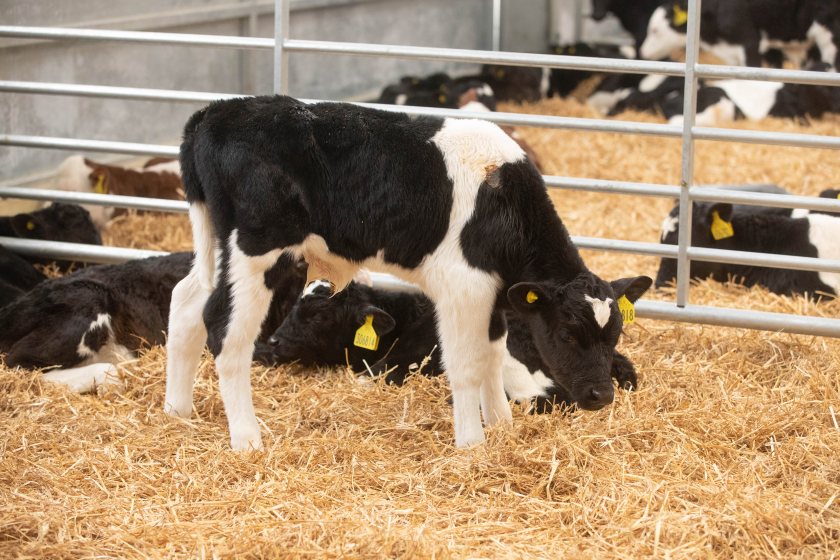
Farmers should investigate the causes of pneumonia and coughing in calves and take steps to understand the mycoplasma status of their herds, animals health experts say.
There is an opportunity to screen cattle before turnout or in beef herds when groups of calves are tested for bovine viral diarrhea (BVD), Ruminant Health & Welfare (RH&W) says.
Including mycoplasma in that serological investigation is important if the herd mycoplasma status is unknown, the independent industry-based body explains.
Recent data has shown that mycoplasma continues to be vastly spread across the UK, however, many herds remain free of the disease.
But RH&W says mycoplasma must be taken seriously because its presence, in combination with other bacteria or viruses, is linked to respiratory problems including BVD.
Mycoplasma also presents as mastitis, arthritis and swollen legs in heifers ahead of calving.
“Farmers should take steps to identify the mycoplasma status of their herd to understand potential risks and plan disease management accordingly,” says RH&W chairman, Nigel Miller.
“We must also remember that although we often experience coughing in housed calves and feeding cattle, it isn’t inevitable.
"Even if clinical pneumonia is avoided coughs signal the loss of performance in the herd," he explains.
Mycoplasmas are very small bacteria that belong to the class mollicutes, meaning soft skin, with Mycoplasma bovis (M bovis) of most concern to UK cattle farmers due to its defence mechanisms which make it difficult to treat.
“Mycoplasma bovis lacks a cell wall so some widely used antibiotics are not effective in treating it,” explains Mr Miller.
“The bacteria also has the ability to change its surface proteins to evade the cow’s immune response, while an ability to produce a sugar matrix biofilm means it can temporarily hide from both the immune system and antibiotics.
“Dairy beef systems are particularly at risk due to a combination of factors including calves receiving sub-optimal passive immunity, the mixing of calves from herds of different mycoplasma status, and instances of poor hygiene in calf rearing units."
Laboratory diagnostic rates for M bovis have risen over the past 10 years, with vets also seeing an increase on-farm in a range of clinical problems caused by the bacteria.
The risk of mycoplasma infection highlight the need for farmers to work with their vets to ascertain their herd’s mycoplasma risk status.
RH&W steering group member, Keith Cutler, says a whole herd approach to health management is needed to minimise the mycoplasma risk.
“Although the use of vaccines can play a positive role, farmers need to look at all aspects of health management with their vet, including the environment, hygiene, immunity, monitoring and management of infection pressures.
“They should also pay close attention to the mycoplasma status of any herds they are buying stock from, as purchased cows or heifers infected with the bacteria are considered one of the largest risk factors for infecting a herd.”
